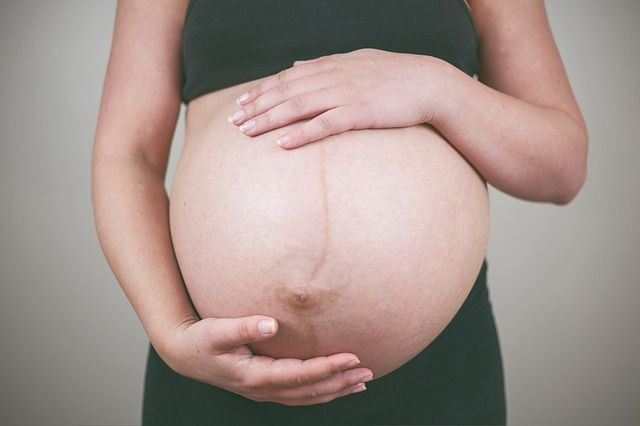Pregnant Women Express Fears Of Childbirth And Distrust In Health Professionals

The day a baby comes into the world is supposed to be one of the best days in a parent's life, but new research is showing that for mothers around the world, this otherwise joy-filled time is loaded with anxiety, fear, and a lack of control over what happens to their bodies.
A new report from the University of Michigan found that, while childbirth is generally a terrifying experience, American women experience significantly higher levels of childbirth fear and anxiety when compared to women in other developed countries. For the study, researchers polled 25 women between the ages of 19 and 41 who were pregnant or had recently given birth about the amount of fear and anxiety they felt towards the experience. The participants were gathered into three small, diverse focus groups, with the first made up of three women and the second and third groups made up of 12 and seven, respectively.
Results showed that, although some fear in expectant mothers is normal and even helpful in the planning process, the amount reported by the polled women was quite alarming. Women reported not only being fearful of pain and birth complications, but also expressed great distrust in their health providers. For example, the mothers admitted to being afraid of being abandoned by their doctors, not being treated respectfully by their clinician, and not having their decisions regarding the birthing process carried out. Among women who didn’t have good insurance, there was concern over not being treated well as a result.
These mothers' reservations are not unfounded. A new British report has shown that one in three mothers-to-be in the United Kingdom are denied a choice of where and how they have their babies and had no say at all in the matter, The Telegraph reported. This issue can be especially problematic for rape survivors. For some of these women, childbirth can trigger rape memories and cause the experience to be traumatic, and even interfere with a mother's ability to bond with her baby. To address this problem, one maternity clinic at the Royal London Hospital is specifically designed to help address the needs of sexual violence victims, Newsweek reported.
Not only are traumatic childbirths hard on mothers mentally, but they can also be a serious health concern.
"Women who have significant fear of childbirth are more likely to have C-sections, longer labors, and to need induction or augmentation," Lee Roosevelt, a study author who is also a midwife, said in a statement. "They're more likely to have postpartum depression."
The researchers hope this information will help them better service the needs of pregnant women in order to help make the birth process easier for them. The ultimate goal of the team is to eventually develop a survey tool to accurately assess a woman’s fear of childbirth and then use this information to examine how fear affects the physiology of pregnant women.
Source: Roosevelt L, Low LK. Exploring Fear of Childbirth in the United States Through a Qualitative Assessment of the Wijma Delivery Expectancy Questionnaire. JOGNN . 2016



























